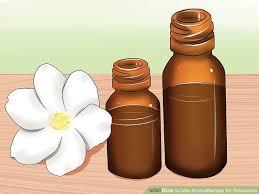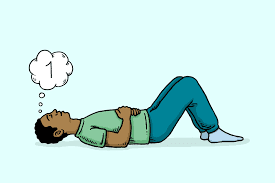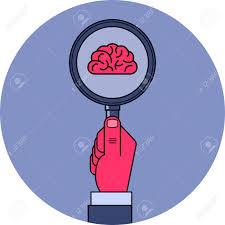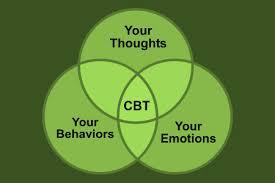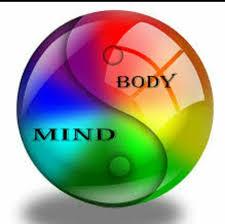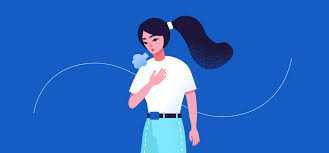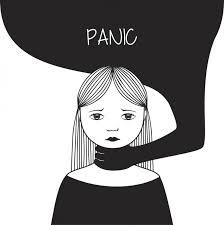How to Cope with Anxiety: 11 Simple Ways and When to See a Doctor
healthline.com
15 ideas
·9.5K reads
31
1
Learn more about health with this collection
How to set achievable goals
How to manage time for personal and professional life
How to avoid distractions
Use Aromatherapy
Whether they’re in oil form, incense, or a candle, scents like lavender, chamomile, and sandalwood can be very soothing.
Aromatherapy is thought to help activate certain receptors in your brain, potentially easing anxiety.
274
885 reads
Go For a Walk Or Do Yoga
Walking away from an anxiety inducing situation can be very effective. Taking some time to focus on your body and not your mind may help relieve your anxiety.
237
600 reads
Write Down Your Thoughts
Writing down what’s making you anxious gets it out of your head and can make it less daunting.
252
656 reads
Practice Focused, Deep Breathing
Try breathing in for 4 counts and breathing out for 4 counts for 5 minutes total. Evening out your breath, you slow your heart rate which may help you calm down.
243
631 reads
Question Your Thoughts
Negative thoughts can take root in your mind and distort the severity of the situation. Ask yourself if your fears are warranted, and see where you can take back control.
253
661 reads
Manage Your Triggers
When you figure out your trigger, try to limit your exposure if you can. Some common triggers:
- Stressful environments
- Driving or traveling
- Genetics
- Withdrawal from drugs or certain medications
- Side effects of certain medications
- Trauma, phobias and other mental illnesses
- Chronic issues or illnesses like heart disease, diabetes, or asthma
- Caffeine, alcohol or smoking
265
701 reads
Cognitive Behavioral Therapy (CBT)
CBT helps people learn different ways of thinking about and reacting to anxiety-causing situations. A therapist can help you develop ways to change negative thought patterns and behaviors before they spiral.
261
750 reads
Do a Daily Or Routine Meditation
While this takes some practice to do successfully, mindful meditation, when done regularly, can eventually help you train your brain to dismiss anxious thoughts when they arise.
If sitting still and concentrating is difficult, try starting with yoga.
253
563 reads
Change Your Diet
Changing your diet or taking supplements may take up to three months to make an impact in must be discussed with your doctor. But research shows it can help anxiety reduction.
229
488 reads
Keep Your Body And Mind Healthy
Exercising regularly, eating balanced meals, getting enough sleep, and staying connected to people who care about you are great ways to stave off anxiety symptoms.
236
555 reads
Ask Your Doctor About Medications
If your anxiety is severe enough that your mental health practitioner believes you’d benefit from medication, there are a number of directions to go, depending on your symptoms. Discuss your concerns with your doctor.
174
341 reads
When Is Anxiety Harmful?
Anxiety is part of our brain’s response to a perceived danger. But it may grow out of control into an anxiety attack or a panic attack, or both simultaneously.
Initially, manageable anxiety can build up over a few hours and become an anxiety attack. This is different from a panic attack, which is out of the blue and subsides.
213
490 reads
Signs Of An Anxiety Attack
- Feelings of danger, panic, or dread
- Nervousness or restlessness
- Rapid heart rate
- Sweating
- Trembling or chills
- Tiredness or weakness
- Gastrointestinal problems
- Difficulty focusing
- Hyperventilation
247
781 reads
Symptoms Of a Panic Attack
- Fear of dying
- Feeling like you’re losing control
- A sense of detachment
- Heart palpitations
- Shortness of breath
- Chest pains or tightness
- Nausea
- Feeling lightheaded or dizzy
- Numbness or tingling in your extremities
- Feeling hot or cold
234
692 reads
Managing Anxiety
If you notice that quick tips haven’t been working, you may want to consider seeing a professional for help. Especially if you may have GAD and it's interfering with routine activities and causing physical symptoms.
A mental health professional can help with streamlining the process of identifying your triggers and maintaining long-term strategies. Anxiety may always be a part of your life, but all cases can be managed.
207
710 reads
CURATED BY
More like this
4 ideas
13 ideas
How to recognise the symptoms of anxiety and get help
theguardian.com
9 ideas
Caffeine and Anxiety: How Caffeine Affects Your Anxiety
declutterthemind.com
Read & Learn
20x Faster
without
deepstash
with
deepstash
with
deepstash
Access to 200,000+ ideas
—
Access to the mobile app
—
Unlimited idea saving & library
—
—
Unlimited history
—
—
Unlimited listening to ideas
—
—
Downloading & offline access
—
—
Personalized recommendations
—
—
Supercharge your mind with one idea per day
Enter your email and spend 1 minute every day to learn something new.
I agree to receive email updates

